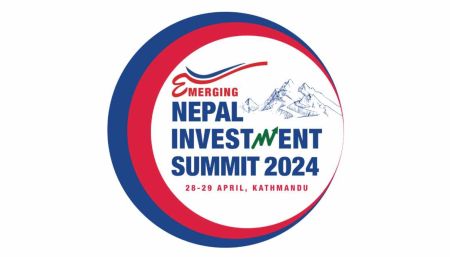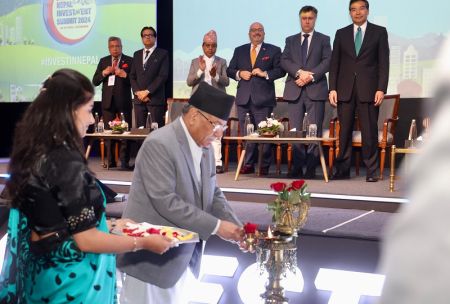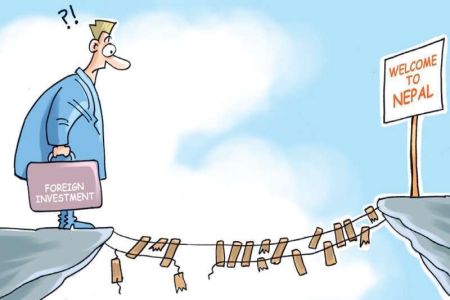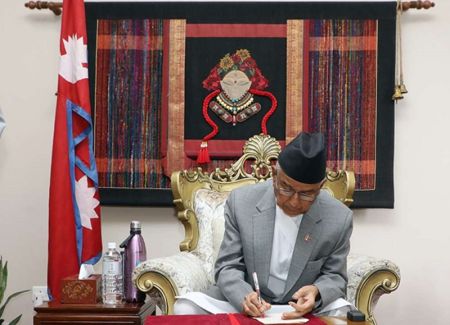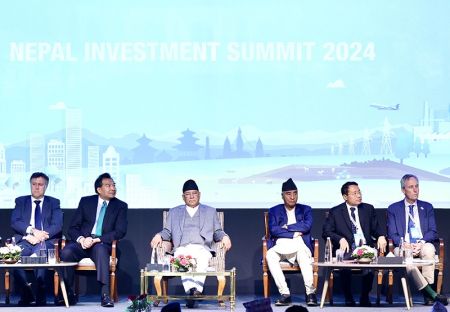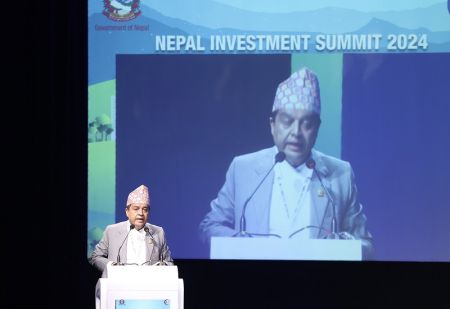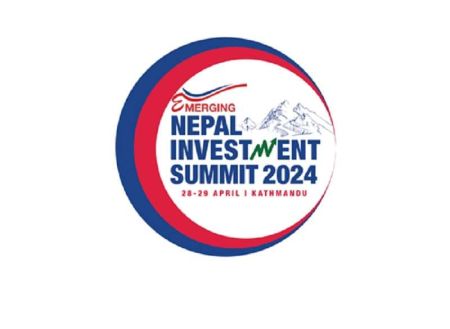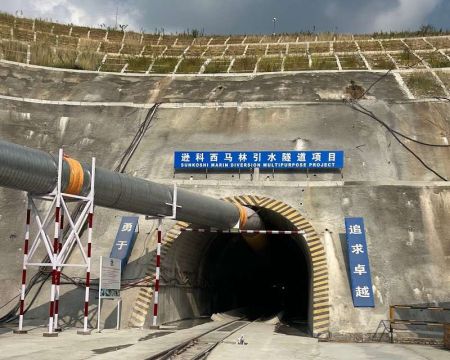 Prof Subas KC
Prof Subas KC Faculty and Dean
Kathmandu University School of Management (KUSOM)
Professor Subas KC is a faculty Dean at Kathmandu University School of Management (KUSOM). An MBAC from Tribhuvan University and with a Post Graduate Diploma in Training and Development from University of Manchester, UK, his areas of specialisations include Human Resource Management/Development, Organisational Behaviour and Organisation Development. He previously worked as the Director of Centre for Management Innovation (CEMI) at Nepal Administrative Staff College and as a Training and Research Officer for the development of cooperatives in the government. In an interview with New Business Age, Professor KC expresses his ideas on the importance of management education in Nepal and recommends better quality to get closer to international standards. Excerpts:
What is driving the growth of management schools in Nepal? How do you think management education is going to shape up in the foreseeable future?
I think the growth has been pretty good. A number of business schools have opened in recent years as a result of the increasing demand for business education. From the perspective of both demand and supply of business education, it is a very encouraging and healthy development we have here. However, I can’t say the same from a quality perspective. All the business schools in Nepal need to substantially improve their quality levels. We need to be able to supply competitive products in the market particularly because they have to compete with business graduates arriving from western universities.
I believe that our society is going through a process whereby it is trying to managerialise itself. What we lacked in the past was a managerial approach to address our issues and problems. However, if you look at the history of economic, social and industrial development of the western societies, you will find that they went through a managerial revolution at some stage or the other. Therefore, we need managerialisation of values, ideas, attitudes and perspectives among others. A manager looks at things differently than a person who is not trained as a manager. Our society and economy are in the process of modernisation so we need to managerialise them accordingly. This is another reason why the demand and value for management graduates have tremendously increased. I only hope that it’s not a passing fad and the demand for MBA graduates will continue to grow. As for managerialisation, the process has already begun and the evidence is for all of us to see but I am not happy with the pace of it. If the existing process accelerates and catches momentum, we will need more professionals and graduates with adequate training in business administration. Therefore, I am confident that the value of MBA education will continue to grow at least in the foreseeable future.
What is the competency of business graduates produced in Nepal compared to those from regional and international universities?
As I just mentioned, we need to maintain our competitiveness if we want to be part of the globalised economy. When we compare home-grown graduates with the ones who have graduated from western universities or the best universities in India, we are slightly behind in terms of quality. It’s not necessary that everyone who has a business degree from abroad is better than the graduates produced in Nepal. However, it would be unfair to compare our graduates with the ones from IIM, Harvard or Wharton. On the whole, MBA graduates from good business schools in Nepal are at least at par with business graduates from average or above average universities in India and elsewhere. But the business graduates from mediocre business schools in Nepal are far behind in terms of quality. Though it will take plenty of time, effort, resources and dedication, we at KUSOM want to improve the quality of our graduates to enhance their competitiveness. We are certainly on our way to make our graduates as competitive as possible.
How do you analyse the motives of students behind pursuing management education now-a-days?
It’s definitely very good from the perspective of business schools. However, it’s not too difficult to explain this explosion of interest in business education. There are a couple of reasons for the strong desire on part of the students to pursue business education, particularly MBA. You must understand that MBA is a global brand. With increasing exposure to the rest of the world, parents as well as students have become aware of this brand and its value. The brand value of MBA was always there worldwide but it arrived slightly late in our part of the world and it has now caught on. An MBA programme is a package which prepares its graduates for taking on diverse and competent roles and it gives them an edge over other education. This ultimately helps them put their best foot forward in the job market as well as while taking over family businesses or turning entrepreneurs.
The teaching-learning methodology is often criticised for being traditional. How has KUSOM tried to change this traditional practice?
Without talking about the pedagogy of education, we cannot talk about MBA. In fact, worldwide, it is an educational process where you would find different methodological approaches compared to other disciplines. We are trying to follow different approaches to train and educate our MBA students. We follow case-based methods and a lot of times, problem-based method of teaching. We give students problem-like situations, either real-life or imaginary problems, and we ask them to first analyse the problem using theoretical concepts or models and then come up with recommended course of action. We also apply project-based method of learning where students are given real-life problems. They have to reach out to several industries and organisations, interact with the managers, come up with real data, prepare a report and finally make a presentation based on all these. Even in a classroom environment, we create what we call interactive and group-based learning approach. Students are divided into small groups and made to discuss issues and problems among themselves so they learn through and with each other. This cross-breeding of ideas generates new ways of looking at things. We have been the pioneer and leader in using more innovative approaches through these three methods of learning namely problem-based, project-based and interaction-based methods.
How do you see the current trend of colleges being affiliated to foreign universities?
It’s a tricky proposition and to be honest with you, I am not happy about the whole idea. The foreign universities that some business schools in Nepal claim to have an affiliation with are not prestigious universities by any means. I would rather like to see business schools establishing some kind of affiliation with Harvard, Kellogg, Wharton, IIM or London Business School. I will be the first one to welcome affiliations with these trusted names because it would help us raise the quality of education here. We at KUSOM, too, will be under pressure to raise our level of competency. If we are not able to bring in prestigious universities, then probably it makes more sense to pool our resources together and invest it in our own MBA education. Besides, MBA education is locally sensitive to some extent where several courses need to be customised to meet the requirements of local businesses and organisations. For example, it’s no point teaching students the US copyright law. Simply having the tag of a foreign university does not ensure quality education.
Do you think the new MBA colleges have been able to address issues that the older MBA colleges lack?
Not really. In any sector be it education or otherwise, our culture and psychology is such that rather than innovating, we simply follow the leader or a successful example. KUSOM had the advantages of being the first mover but it did commit its share of mistakes. However, the colleges that followed us failed to learn lessons from our mistakes. In Nepal, we don’t have this culture or psychology of critiquing that brings forth positive evaluation of others. I would be happy if the business schools in Nepal learn from each other as far as successes are concerned. And of course, it would be great if they could also learn from each other’s mistakes and don’t repeat them. It would go a long way towards enhancing the quality of management education in Nepal.
Most MBAs target a job in a bank. Is that only what the MBA course is designed for? Do you see any misconception among students in this regard?
To be honest, we don’t advise or encourage students to build their careers in the banking sector per se but the reality is that almost two-third of our students end up working for different banks. MBA course is not designed to develop people for the banking sector only. However, the fact is that banking is among the fastest growing sectors and 90 per cent of the students, while interviewed for intake, say that they want to join a bank after graduating. Another reason is that the banking sector has some very iconic figures and a lot of students seem to have their role models and corporate leaders associated with this industry. Compensation package in banks are more attractive compared to other sectors which is another factor. Besides, a lot of our students come from well-to-do families so they want to work in banks for reasons of convenience. I am sorry to say this but it is a wrong career model for MBA graduates.
On our part, we are consciously orienting our students to think in terms of careers outside the banking sector. Our emphasis is on entrepreneurship and we want our MBA graduates to become job-givers rather than become job-seekers. A majority of our students joining banks is actually alarming for us. We don’t want to attach our MBA programme with banking career only because that will be suicidal for us. We are working to make sure that our students diversify their career choices.
Tell us the way you go about campus recruitment at KUSOM.
We have an excellent track record on recruitment as our graduates are readily absorbed in the job market. And, some of them land a job even before they complete their programme. All our graduates so far have found employment within months of graduating and have gone far in life except for those who don’t want to work for others. There are some graduates who either turn entrepreneurs or join their family businesses. We have a unit here called ‘PlaCe’ (Placement Cell) supervised by an Assistant Professor and supported by a couple of alumni in the team. In this context, we are organising a job fair on September 2 for which we have sent out invitations to about two dozen companies. This job fair will create a platform for employers and the potential employees. Also, in the last term of the programme, we train our students in job search. We have recently reorganised our placement cell. Now, people associated with it have come up with an excellent plan. They maintain a database of our graduates and some of the industries which have openings for fresh MBAs. One aspect that is missing but I would like to add to our placement efforts is appointment of a professional counsellor. We do job counselling to the extent we can but it is a specialised area so we hope to have a trained job counsellor or psychologist who can do a psychometric analysis of the students’ career potential and advice them accordingly.






